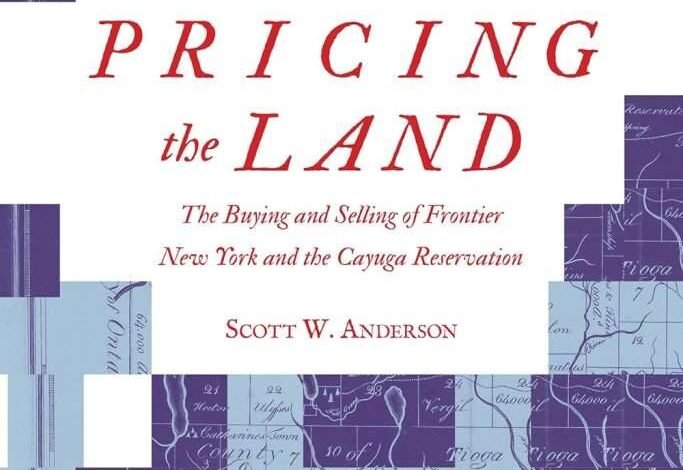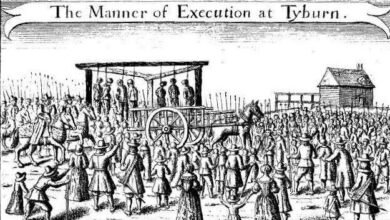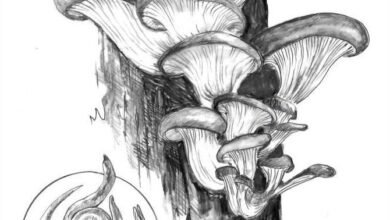Pricing the Land: The Buying and Selling of Frontier New York


 Pricing the Land: The Buying and Selling of Frontier New York and Cayuga Reservation (Cornell University Press, 2024) reconstructs the complicated history of buying and selling land along the New York frontier after the American Revolution.
Pricing the Land: The Buying and Selling of Frontier New York and Cayuga Reservation (Cornell University Press, 2024) reconstructs the complicated history of buying and selling land along the New York frontier after the American Revolution.
Scott W. Anderson focuses on the prices bid for lots in Central New York that had been set aside for veterans of the war (the New Military Tract) and within the Cayuga Reservation created by treaty in 1789, comprising a hundred square miles of land on both shores of the northern end of Cayuga Lake.
He considers several factors that affected the value of this land: the scarcity of money in early America; the role that Alexander Hamilton‘s assumption policy played in encouraging debt speculation; the sale of huge tracts by New York and Massachusetts to investment syndicates; and the struggles of settlers across the New York frontier to escape debt, bondage, and poverty.
Anderson, who served as an expert witness in the Cayuga Land Claim trials of 1999 to 2001 that awarded the Cayuga Nation $247.9 million in compensation and damages (a judgment overturned in 2005), developed new methodological tools for determining a better estimate of the value of this land.
In Pricing the Land, he concludes that the only accurate measure of worth lay in the settlers’ ability to pay their rents or debts, which was only possible once the Market Revolution reached Central New York.
As a result of his historical recovery, Anderson finds that the Cayuga Nation might have been entitled to twice the amount they were awarded in their lawsuit.
Upcoming Author Event
The Cayuga Museum of History & Art in Auburn, NY, is hosting an upcoming talk with Dr. Scott W. Anderson, historian and Professor Emeritus of Geography at SUNY Cortland, as he discusses the early evolution of Auburn through land speculation, a topic covered extensively in Pricing the Land.
In this talk, Dr. Anderson will also explore themes from his other published work Auburn, New York: The Entrepreneur’s Frontier and discuss the extent to which land speculation along the early Post-Revolutionary New York frontier had both positive and negative impacts on the economic growth and future industrial development of emerging communities like Auburn.
Using for comparison what happened to land sales in the Cayuga Reservation and Seneca Falls, as well as those in the larger scale speculations further west, Dr. Anderson will demonstrate that Auburn’s development and the prosperity of its early entrepreneurs benefited greatly from the more free market conditions found among land speculations in The New Military Tract, where it was centrally located.
This program will take place in the Cayuga Museum’s Carriage House Theater at 7 pm on Wednesday, May 21. The Theater is located at 26 Orchard Ave in Auburn, NY (rear of the Cayuga Museum property at 203 Genesee Street). Parking is located adjacent to the theater off Orchard Ave in the Cayuga Museum and Schweinfurth Art Center lots. Free street parking is also available on Genesee and Washington Streets.
Reservations & Live Stream
Admission to this program is $10 for the general public, $5 for Museum Members. If you have access to a Museum Guest Pass, you may redeem a pass for free entry to this program.
If you are unable to attend this program in-person, you may request access to the live stream with a $5 donation. The Museum will send a confirmation e-mail shortly after you make your donation, and a link to the Zoom live stream will be made available 24 hours before the session begins.
Go to cayugamuseum.org/guest-speakers to learn more or make a reservation. This program is presented in conjunction with the exhibit “Making History: Stories of Industry in Auburn” which is on display at the museum through May 24.
Book Purchases made through this Amazon link support the New York Almanack’s mission to report new publications relevant to New York State.
See more new books HERE.
Source link




